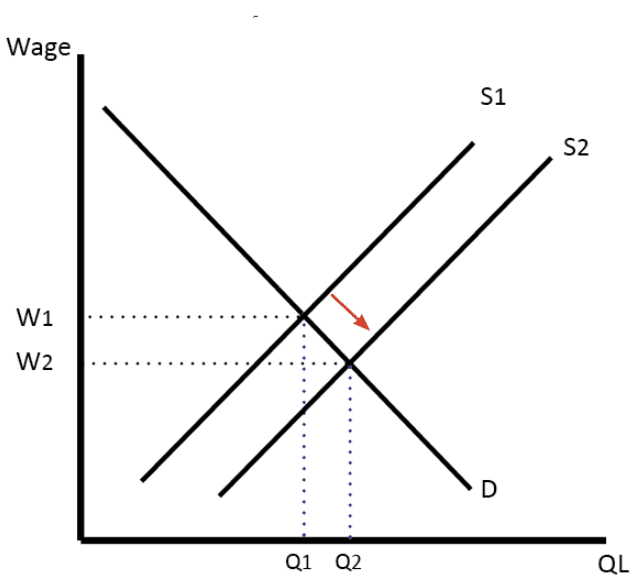Paradox of toil
The paradox of toil states that under certain conditions if people wish to work longer hours, this can cause falling real wages and rising unemployment. The paradox is that individuals have an incentive to work longer, but if everybody wants to work longer hours, it can actually cause unemployment. The paradox of toil only works …

